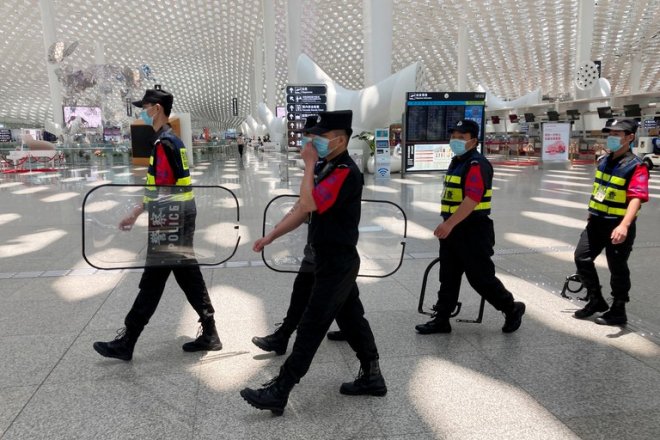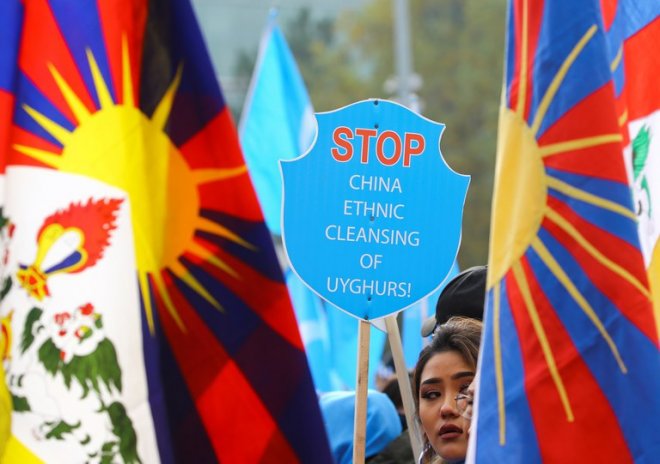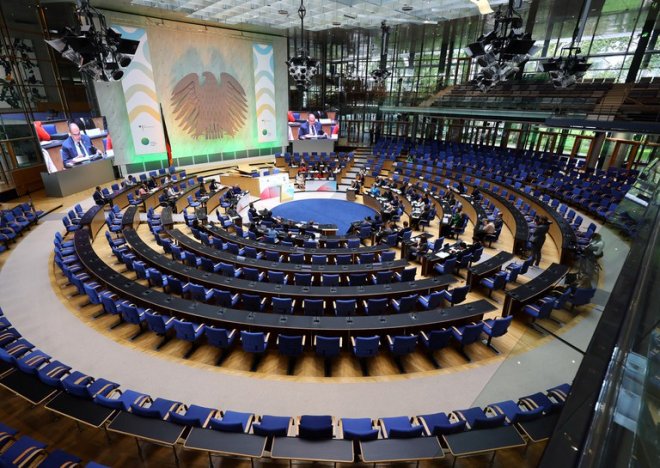China tightens border controls, slaps travel bans on blacklisted dissidents
Authorities in China are carrying out extensive checks on passengers leaving the country, slapping travel bans at border checkpoints on individuals seen as "politically sensitive," according to rights activists.While bans on nonessential travel featured heavily during the stringent lockdowns, mass quarantines and compulsory testing of the zero-COVID policy, which ended in December 2022 following nationwide protests, restrictions remain in place for many critics of the ruling Communist Party.
Border guards in the southern province of Guangdong, home to some of the highest-volume border crossings in China, have prevented a number of rights activists from leaving in recent weeks.
An activist who gave only the surname Liu for fear of being punished said he had been stopped by police at a checkpoint and prevented from boarding a flight to Malaysia via the former Portuguese-run city of Macau.
"They stopped me at security, took me to their office and interrogated me and searched me and my luggage," Liu said. "Then they told me I wasn"t a suitable candidate to be allowed to leave the country."
‘Endanger national security’
Liu said he only found out after trying to negotiate with the officials that his name appears on a blacklist of individuals banned from leaving China for reasons of "national security."
"They had a record on the computer system saying I"m not allowed to leave the country," he said. "They took me to their operations center and questioned me further."
 Security personnel are seen at the Shenzhen Baoan International Airport in Shenzhen, China. Credit: Reuters file photo
Security personnel are seen at the Shenzhen Baoan International Airport in Shenzhen, China. Credit: Reuters file photo"Then they told the state security police back in my hometown, and let me go," he said. "I asked them to give me an explanation, and they said ... [letting me leave] could endanger national security or the national interest."
A rights activist who gave only the surname Zhao said he knows of several people who have run into similar problems while trying to leave China in recent weeks.
"Several people have been stopped at the border and prevented from leaving," Zhao said. "My local state security police called me and told me that ... I wasn"t allowed to leave."
"They said whether it was up to me if I wanted to apply for a passport, but being allowed to leave was another matter," he said.
Even when border guards do let people leave China, it"s often only after they have submitted to a careful search of all of their luggage, and after paying fines in some cases.
And it seems that the searches and fines are being applied in both directions, according to a Hong Kong resident who gave only the surname Tseng.
"I was only carrying a handbag, and they still wanted to go through it," Tseng said of a recent visit to mainland China via Shenzhen"s Futian Port.
"I saw another woman whose money was seized – she had brought cash, and the customs people were counting it," she said. "[One person] had brought 100,000 yuan and was fined 20,000 yuan, because they were on a blacklist."
‘Run’
In May 2022, Shanghai-based entrepreneurs predicted mass capital flight as a result of Chinese leader Xi Jinping"s zero-COVID policy.
The manufacturing sector hasn"t recovered despite the lifting of the restrictions, which prompted an exodus of middle-class Chinese in a phenomenon known as "run," a play on a Chinese character that sounds a little like the English word by the same name.
The result has been a plethora of fresh security checks at borders, and restrictions on Chinese citizens leaving the country, Zeng said.
"The people who check the documents of people leaving China have been asking a lot more questions lately," she said. "Some people say they"re going to Hong Kong, and then they ask if they plan to travel elsewhere after that, and what the purpose of the trip is, and ask for the relevant documents."
Some rights activists are sidestepping such controls by crossing the border illegally in the southwestern province of Yunnan, walking into Laos and Thailand in the hope of traveling on to a third country afterwards.
A woman currently in Thailand who gave only the surname Guo said she never plans to go back to China.
"I want to tell the truth about the pandemic [in China] to the International Court of Justice in The Hague," she said.
In some cases, the travel bans are imposed before people get to the border or immigration checks.
Passengers told Radio Free Asia in February that police are now calling up people who have booked flights to leave the country and interrogating them about where they are going and when they plan to be back.
Earlier this month, police in the eastern Chinese province of Zhejiang slapped a travel ban on veteran democracy activist Zhu Yufu, as he prepared to travel to Japan to visit his terminally ill sister.
Translated by Luisetta Mudie. Edited by Malcolm Foster.
[圖擷取自網路,如有疑問請私訊]
|
本篇 |
不想錯過? 請追蹤FB專頁! |
| 喜歡這篇嗎?快分享吧! |
相關文章
AsianNewsCast






















